2016-08-26 17:51
Maersk Line reports a second quarter loss of USD 151 million
Copenhagen, 15 August 2016. Maersk Line reported a second quarter (Q2) 2016 result that is USD 658 million lower than Q2 2015. The overriding reason for the loss is record low freight rates.
Revenue in Q2 was USD 5,061 million, which is 19% lower than Q2 2015 (USD 6,263 million). Volumes were 6.9% higher as Maersk Line delivered on its objective of growing at least in line with the market to defend our leading position. Maersk Line´s capacity grew 2.2%. The container shipping demand growth was about 2% and the global container fleet (capacity) growth was about 6%. Consequently, the market conditions continue to be very challenging.
Unit costs reached an all-time low of USD 1,911 per FFE in the second quarter of 2016 due to a clear cost focus and very tightly managed capacity. The average freight rate continued to fall throughout the second quarter of 2016 due to lower bunker prices, weak demand and overcapacity. Compared to Q2 2015, Maersk Line’s average rate declined by 24% to USD 1,716, which is the lowest average freight rate ever reported by Maersk Line.
“Freight rates dropped in the second quarter of 2016 to record low levels and we made a loss as we were unable to reduce costs at the same speed. We are not satisfied with our second quarter result. We continue to deliver on our growth and cost objectives. We have won market share and we have record low unit costs as our network is close to fully utilised. On top of this, we maintain our lead on competition measured on profitability,” says Søren Skou, CEO of Maersk Line.
On 4 November 2015, Maersk Line announced a cost reduction programme aiming to reduce SG&A cost by USD 250 million per year in 2016 and 2017 including reducing the work force by at least 4,000 positions. This is progressing as planned. Maersk Line maintains its 2016 full year expectation of a significantly lower underlying result than for 2015 (USD 1.3bn). “We believe that the freight spot rates have bottomed out and we anticipate that they will increase in the third quarter due to seasonal factors. However, the rates will remain under pressure due to overcapacity and low demand. And while we see improvements in e.g. European imports, we maintain our expectation that the demand for container shipping will only grow by 1-3% in 2016,” concludes Søren Skou.
Revenue in Q2 was USD 5,061 million, which is 19% lower than Q2 2015 (USD 6,263 million). Volumes were 6.9% higher as Maersk Line delivered on its objective of growing at least in line with the market to defend our leading position. Maersk Line´s capacity grew 2.2%. The container shipping demand growth was about 2% and the global container fleet (capacity) growth was about 6%. Consequently, the market conditions continue to be very challenging.
Unit costs reached an all-time low of USD 1,911 per FFE in the second quarter of 2016 due to a clear cost focus and very tightly managed capacity. The average freight rate continued to fall throughout the second quarter of 2016 due to lower bunker prices, weak demand and overcapacity. Compared to Q2 2015, Maersk Line’s average rate declined by 24% to USD 1,716, which is the lowest average freight rate ever reported by Maersk Line.
“Freight rates dropped in the second quarter of 2016 to record low levels and we made a loss as we were unable to reduce costs at the same speed. We are not satisfied with our second quarter result. We continue to deliver on our growth and cost objectives. We have won market share and we have record low unit costs as our network is close to fully utilised. On top of this, we maintain our lead on competition measured on profitability,” says Søren Skou, CEO of Maersk Line.
On 4 November 2015, Maersk Line announced a cost reduction programme aiming to reduce SG&A cost by USD 250 million per year in 2016 and 2017 including reducing the work force by at least 4,000 positions. This is progressing as planned. Maersk Line maintains its 2016 full year expectation of a significantly lower underlying result than for 2015 (USD 1.3bn). “We believe that the freight spot rates have bottomed out and we anticipate that they will increase in the third quarter due to seasonal factors. However, the rates will remain under pressure due to overcapacity and low demand. And while we see improvements in e.g. European imports, we maintain our expectation that the demand for container shipping will only grow by 1-3% in 2016,” concludes Søren Skou.
< Korea Shipping Gazette >
많이 본 기사
- 희망봉 우회로 컨선 16% 흡수…내년에도 계속된다‘가스공사 전용선 30% 점유’ 현대LNG해운 해외매각 시끌에미레이트쉬핑라인, 한국법인 출범 “韓 직항노선 확대 추진”국제물류업계, 광양항 마지막 배후단지 활용법 모색한다‘일상이 된 물류시장 불확실성’, AI·친환경이 돌파구해양진흥공사, 해운항만물류기업 공급망 확보 지원 강화우수물류기업 인증 체감효과 낮아 “인센티브 확대 필요”해수부, 내년 선원 최저임금 월 269만원…3.05%↑2028년 유엔 해양총회 한국 유치 확정벌크선시장, 급등 이후 조정 '속도 조절 들어가나'
- 2026 글로벌 공급망 전망과 한국 물류산업의 전략적 대응프랑스 CMA CGM, 동남아-인도 직항로 신설‘수요 둔화 지속’ 컨운임지수 한주만에 1300선으로 후퇴HMM, 연말 맞아 물품기부 캠페인 ‘아름다흠’ 전개해양진흥공사, “中 철광석 수입 증가” 배경 벌크선 운임지수 급등해양과학기술원, 日과 친환경 연안공간 만들기 '맞손'덴마크 노르덴, 남아공 소량화물 수송기업 인수 인사/ 팬오션해운협회, 부산항도선사회와 CCTV 활용 안전도선 업무협약DHL, 중동 두바이에 차세대 물류허브 개소








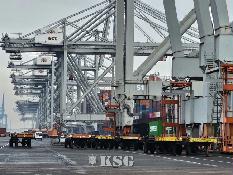

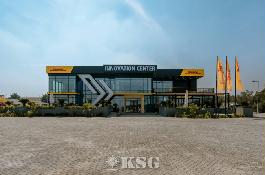

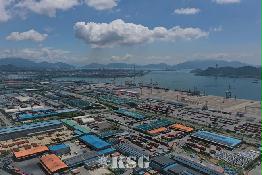

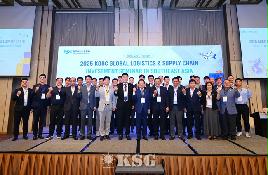

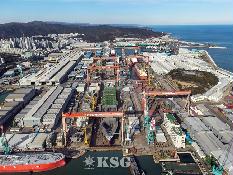


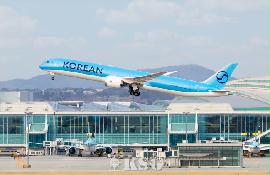


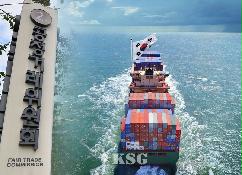

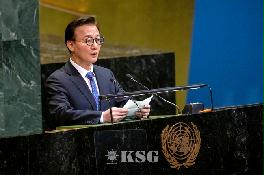

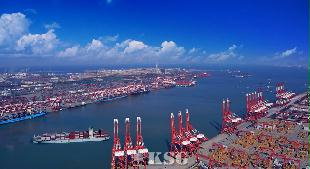
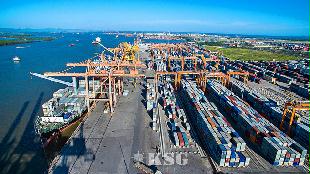
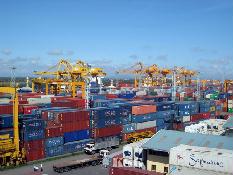






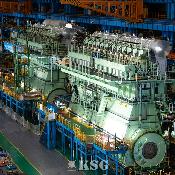
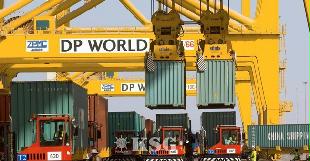

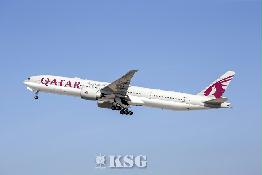























0/250
확인